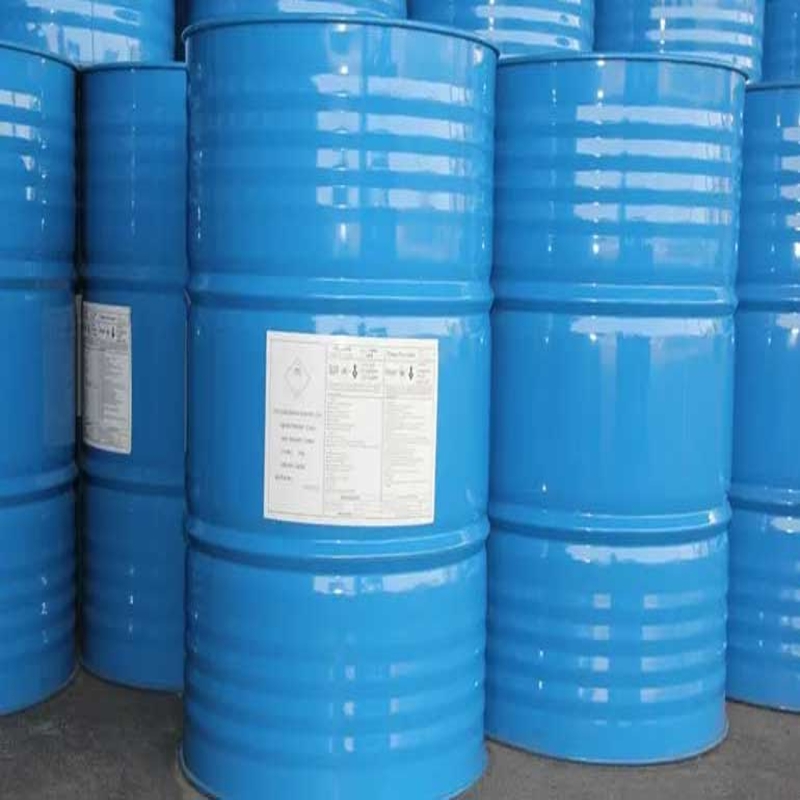-
Categories
-
Pharmaceutical Intermediates
-
Active Pharmaceutical Ingredients
-
Food Additives
- Industrial Coatings
- Agrochemicals
- Dyes and Pigments
- Surfactant
- Flavors and Fragrances
- Chemical Reagents
- Catalyst and Auxiliary
- Natural Products
- Inorganic Chemistry
-
Organic Chemistry
-
Biochemical Engineering
- Analytical Chemistry
-
Cosmetic Ingredient
- Water Treatment Chemical
-
Pharmaceutical Intermediates
Promotion
ECHEMI Mall
Wholesale
Weekly Price
Exhibition
News
-
Trade Service
On April 15, Premier Li Keqiang visited Tsinghua University and heard about the development of high-temperature gas-cooled reactors in fourth-generation nuclear power plants and expressed support for high-temperature gas-cooled reactors in nuclear power plants to "go global"
.
"The Prime Minister attaches great importance to the development of nuclear power and is very familiar with
the situation of nuclear power.
He asked us questions
about the research and development of key technologies, the safety of nuclear power, and how safety can be verified.
Professor Zhang Zuoyi, chief designer of the National Science and Technology Major Project of High-temperature Gas Cooled Reactor, dean of the Institute of Nuclear Energy and New Energy Technology of Tsinghua University, and vice chairman of China Nuclear Energy Technology Co.
, Ltd.
, recalled
.
The Prime Minister also asked when the demonstration power station could be connected to the grid to generate electricity
.
The Prime Minister also expressed support for HTS to 'go global'
.
Zhang Zuoyi said that after decades of scientific research by Tsinghua University, high-temperature gas-cooled reactors have now moved towards industrialization
.
We replied to the Prime Minister that the demonstration project will be completed in 2017 to generate electricity, which will make an important contribution
to the development of the fourth generation of nuclear power in China.
”
High-temperature gas-cooled reactor is the fourth generation of advanced nuclear power technology with completely independent intellectual property rights in China, which has the characteristics and advantages
of inherent safety, wide application fields, modular construction, and strong market adaptability.
The completion of a 200,000-kilowatt-class high-temperature gas-cooled reactor demonstration project with independent intellectual property rights is a core goal
of the national major science and technology project of high-temperature gas-cooled reactor.
At present, the construction of the high-temperature gas-cooled reactor demonstration project is progressing smoothly and has entered the construction stage
of comprehensive installation.
On March 20 this year, the first reactor pressure vessel was successfully hoisted into place; At the end of March, the spherical fuel element production line was completed and entered the formal production stage; At the beginning of April, the digital instrument control system (DCS) was successfully delivered
.
All work is progressing
in an orderly manner as planned.
At present, the commercial promotion of high-temperature gas-cooled reactors has been launched
.
Domestically, Jiangxi, Fujian, Guangdong and other places have started preliminary work; Internationally, China National Nuclear Construction Corporation and Saudi Energy City signed a memorandum of cooperation in January this year, ushering in an important opportunity
for high-temperature gas-cooled reactors to "go global".
On April 15, Premier Li Keqiang visited Tsinghua University and heard about the development of high-temperature gas-cooled reactors in fourth-generation nuclear power plants and expressed support for high-temperature gas-cooled reactors in nuclear power plants to "go global"
.
"The Prime Minister attaches great importance to the development of nuclear power and is very familiar with
the situation of nuclear power.
He asked us questions
about the research and development of key technologies, the safety of nuclear power, and how safety can be verified.
Professor Zhang Zuoyi, chief designer of the National Science and Technology Major Project of High-temperature Gas Cooled Reactor, dean of the Institute of Nuclear Energy and New Energy Technology of Tsinghua University, and vice chairman of China Nuclear Energy Technology Co.
, Ltd.
, recalled
.
The Prime Minister also asked when the demonstration power station could be connected to the grid to generate electricity
.
The Prime Minister also expressed support for HTS to 'go global'
.
Zhang Zuoyi said that after decades of scientific research by Tsinghua University, high-temperature gas-cooled reactors have now moved towards industrialization
.
We replied to the Prime Minister that the demonstration project will be completed in 2017 to generate electricity, which will make an important contribution
to the development of the fourth generation of nuclear power in China.
”
High-temperature gas-cooled reactor is the fourth generation of advanced nuclear power technology with completely independent intellectual property rights in China, which has the characteristics and advantages
of inherent safety, wide application fields, modular construction, and strong market adaptability.
The completion of a 200,000-kilowatt-class high-temperature gas-cooled reactor demonstration project with independent intellectual property rights is a core goal
of the national major science and technology project of high-temperature gas-cooled reactor.
At present, the construction of the high-temperature gas-cooled reactor demonstration project is progressing smoothly and has entered the construction stage
of comprehensive installation.
On March 20 this year, the first reactor pressure vessel was successfully hoisted into place; At the end of March, the spherical fuel element production line was completed and entered the formal production stage; At the beginning of April, the digital instrument control system (DCS) was successfully delivered
.
All work is progressing
in an orderly manner as planned.
At present, the commercial promotion of high-temperature gas-cooled reactors has been launched
.
Domestically, Jiangxi, Fujian, Guangdong and other places have started preliminary work; Internationally, China National Nuclear Construction Corporation and Saudi Energy City signed a memorandum of cooperation in January this year, ushering in an important opportunity
for high-temperature gas-cooled reactors to "go global".







